More on News
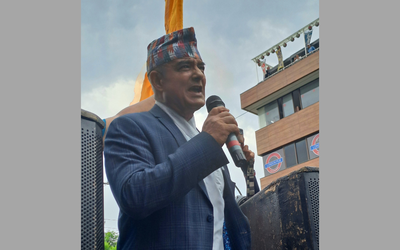
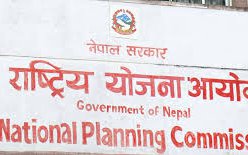
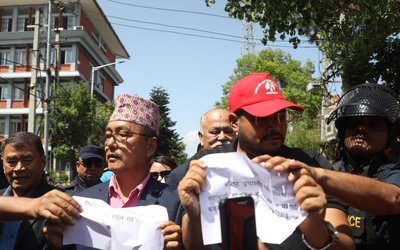
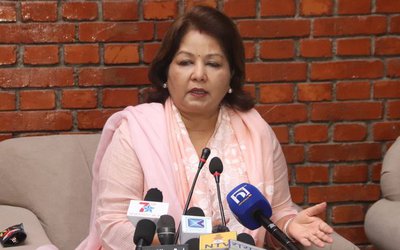
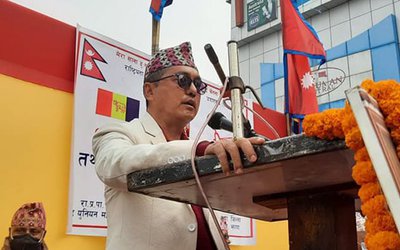
About 2350 years back, the ancient Greek philosopher Aristotle argued that political science is the “master science”, upon which all other sciences depend. Few intellectuals may not digest this statement, but the way our society is moving in the past 62 years of modern Nepal, it could be easily proven that politics was the main factor influencing the entire fabric of Nepalese society. In spite of series of political changes starting from the year 1950AD until 2005AD, as of today Nepal is still in the category of “backward and undeveloped” country, whereas many similar countries in Asia and Africa moved ahead leaving us behind. May be for the first time in country’s history, the vast majority of population are aware of the tremendous gap in the extent of development between Nepal and rest of the world. It is mainly due to not only Internet and television, but also due to impact of exposure of millions of Nepalese youths working in developed societies of Middle East, Malaysia, Korea, Japan and Israel. There may be endless debate regarding the reasons for country’s continued debacle even after the advent of multi-party democracy in the year 1990AD. But no one can deny the importance of politics and politicians in the governance of a country, especially in a nation, which adopted “representative democracy”.
In multi-party representative democracy, it is mandotary for political parties to perform few essential duties and tasks like selecting candidates to run parties as well as to run public offices, organizing and forming governments, providing opposition to the parties in power, managing resources to participate in elections and above all compete one another to gain control of the governance. Generally speaking all these tasks were performed fairly well in the past 5 or 6 years. But question remains- what went wrong? Apart from almost no improvement in socio-economic growth, why the politics also is a fiasco?
After the last general election and establishment of “all powerful” parliament, it should have been “business as usual” in running the country. But it is unfortunate that socio-economic development took the back seat, and political parties tried to hide their non-performance behind imaginary wall of so-called transition period. Moreover, leaders tried to confuse and keep people off-balance by talking non-stop about the need for consensus on all controversial issues. It is surprizing that civil society, intellectuals and media also vouched for conesensus even in the formation of government, which is totally against the very concept of democracy. The result was unprecedented and totally undemocratic phenomenon of “forced” resignations of three successive Prime Ministers in three years period, although each of them did have majority support in the parliament, thereby pushing politics into disarray.
Essense of political strategy of any political party should be controlling what comes next. Single biggest mistake done by major eight parties, who succeeded to abolish monarchy and bring Loktantra is that they failed completely to predict and foresee unavoidable and obvious entry of competition in the national political scene. They should have realized that rythm and pattern of national politics will be totally different after the success of every political movement or upheaval. They just could not change course from consensus politics of pre-Loktantra era to competitive paradigm and also failed to grasp public sentiment and adapt to new circumstances. On the contrary, they brainwashed the entire population, including intellectuals, civil society and media that consensus, which did not not click for last four years, is very much possible in competitive politics, which helped to enhance frustration level of majority of population.
Moreover, our politicians failed to realize that in the modern day world, democracy is not just “public balloting”, it involves debates, deliberations and exchange of views concerning all public and political issues. Ironically, the “giant” Constituent Assembly, comprising of 601 members, failed to even start discussion on burning issues of new constitution like state re-structuring and form of government. On top of that, the parties failed to improvise vision and strategy, especially in socio-economic affairs, to suit desires and dreams of society, eager to embrace 21st century life style.
Politics is a social game and competition is compulsory in democracy. Nepalese population started experiencing the political game in the democratic play ground only two decades back. This may be one reason why the people are becoming too frustrated and restless. Majority of the people don’t know that tricks, pranks, deciets, deceptions and masquerades are perfectly normal, essential and accepted “weapons” in politics all over the world, and Nepal cannot be an exception. Playing power game is not considered as “evil” behaviour in politics even in ancient time. Epics of Ramayan and Mahabharat are full of those “evil-looking” weapons, which one must adopt to grab power. Unfortunately, politicians, civil society stalwarts, intellectuals and media failed to educate man-on-the-street that use of “dirty” political weapons is normal phenomenon in democratic systems all over the world. On the contrary, inter-party and intra-party political bickerings and vicious criticism of politicians by media, civil society and intellectuals sent a wrong message to general public that parties and politicians in Nepal are the worst ones in the entire world, which is not the case at all. In the existing political scene of Nepal, an important playground, the parliament, does not exist. So, the opposition is in no position to use most of the political weapons usually used in democracy, thereby giving benefit to the ruling group, which managed to “grab” power, while parliament was functioning.
The present political deadlock, which was, kowingly or unknowingly, created by half a dozen senior political leaders of major three parties, must be solved at the earliest. Obviously, in the absence of parliament, there is only one alternative and that is election. In normal circumstances, conducting election for next CA and/or parliament by the present “care-taker” government could be considered as an usual practice in a multi-party democratic system. But the people are told by majority of leaders, civil society personalities, intellectuals and media stalwarts that our country’s political scene is still totally abnormal, and so unusual and undemocratic decisions could also be made by consensus for “county’s interest”. Only one crucial question is still unanswered- what if consensus cannot be reached?




